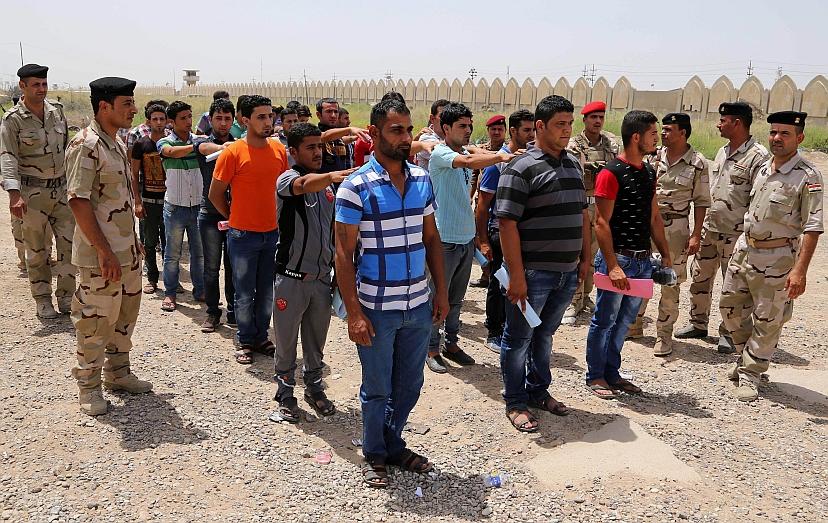Iraq’s crisis demands a wise, quick response from us, according to one expert.
“In most cases in the Middle East, the worst option is to do nothing, which would allow ISIS to take control,” said Andrew S. Natsios. He was administrator for the U.S. Agency for International Development during the Iraq war, and is executive professor at the George H.W. Bush School of Government at Texas A and M University and director of the Scowcroft Institute of International Affairs.
If we wait and do nothing, Islamic State of Iraq and Syria (ISIS) will combine what it has in Syria with what it has in Iraq, and use it to launch attacks against the rest of the Middle East and against us, according to Natsios.
Despite that dire possibility, the prospect of the U.S. military returning to the fight in Iraq has turned congressional hawks into doves.
Lawmakers who eagerly voted to authorize military force 12 years ago to oust Saddam Hussein and destroy weapons of mass destruction that were never found now harbor doubts that air strikes will turn back insurgents threatening Prime Minister Nouri al-Maliki’s government and Baghdad.
Fears of Mideast quagmire and weariness after a decade of conflict in Iraq and Afghanistan loom large for even those who talk tough on national security. More than 6,000 Americans died in those wars, which cost a trillion dollars.
As President Barack Obama mulls his next step, there is little unanimity in Congress on what the United States should do despite some Republican voices—most notably Sen. John McCain—loudly calling for air strikes and stepped-up military action. The sectarian violence between the pro-government Shiites and Sunnis adds to congressional uncertainty.
Natsios noted that al-Maliki has been autocratic and has excluded his country’s minority Sunnis and Kurds, exacerbating unrest. For President Obama to say al-Maliki must mend those fences before we intervene doesn’t make sense, in his opinion. “The former head of ISIS has said he'd restore the caliphate. It’s not hypothetical,” said Natsios. It would mean using crucifixions and beheadings, brutalizing Christians and Jews, and “locking up women.”
Urgent
The options are limited, in his opinion, but the matter is urgent. If America does partner with Iran and use air strikes against the insurgents, it would seem as if we had become an air force for Iran. It would “enrage” some of our allies, such as King Abdullah of Saudi Arabia.
A better course would be to partner with the Kurds, who have a viable army, and with Turkey, a NATO member, said Natsios. “Using air force to support them makes sense.”
This is the unraveling of a situation that had been stable since World War I, 100 years ago, according to Natsios. If ISIS continues to win territory, it will be “very bad for Christians, Jews, and secular liberals.”
Diplomacy
Another expert thinks diplomacy, not military action, is the answer. Tamir Sukkary, adjunct professor of political science at American River College, wrote in an email: “The situation in Iraq, ultimately, needs to be solved by Iraqis and regional countries (namely Iran, Saudi Arabia, and Turkey), rather than the U.S. or other Western countries. U.S. policy toward Iraq has partly led to the problems we’re seeing today.” He said Iran has tremendous influence over the Maliki government. “Secretary Kerry is right to consider working with Iran to find a solution to this crisis.”
He did not address the immediate threat from ISIS.
Senators of both parties appeared almost unanimous in their view that al-Maliki should leave power, even as many called for assistance to his government in battling the Islamic State of Iraq and the Levant (ISIL) insurgency.
ISIL has conquered several cities in Syria and Iraq. The administration is sending almost 300 American forces in and around Iraq to help secure U.S. assets.
“I support almost anything that would curtail” ISIL, said Sen. Orrin Hatch (R-Utah). “That’s a very dangerous situation.”
Obama will discuss the situation in Iraq with House and Senate leaders of both parties at the White House Wednesday. State Department and Pentagon officials will hold closed-doors briefings with lawmakers over the next couple of days.
The Associated Press contributed to this report.





